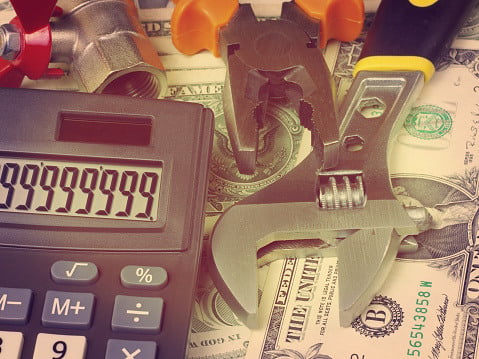 As a homeowners association board member, your responsibilities to the community you oversee are many. Homeowners look to their board to keep their community safe, well-maintained and properly managed. Board members are obligated to do everything in their power to meet its members needs while complying with the community’s CC&Rs as well as any state and local regulations. Unfortunately, there are instances where your HOA board may unknowingly be putting the community at risk. Hiring an HOA manager can take the pressure off of your board members. Let’s take a closer look at the pitfalls that can exist and how you can avoid them.
As a homeowners association board member, your responsibilities to the community you oversee are many. Homeowners look to their board to keep their community safe, well-maintained and properly managed. Board members are obligated to do everything in their power to meet its members needs while complying with the community’s CC&Rs as well as any state and local regulations. Unfortunately, there are instances where your HOA board may unknowingly be putting the community at risk. Hiring an HOA manager can take the pressure off of your board members. Let’s take a closer look at the pitfalls that can exist and how you can avoid them.
1. Insurance
Directors and Officers (D&O) Insurance: California Civil Code §5800 of the Davis-Stirling act outlines all the particulars of HOA insurance requirements for directors and board members. You should review them to ensure your HOA board is in compliance.Commercial General Liability (CGL) Insurance: CGL insurance protects members for damages incurred in common areas. It’s important to make sure your HOA insurance policies meet the minimum requirements according to Civil Code §5805 which protects owners from individual liability as long as the association maintains insurance minimums of:
- At least $2 million dollars if the common interest development consists of 100 or fewer separate interests.
- At least $3 million dollars if the common interest development consists of more than 100 separate interests.
Review your CC&Rs to make sure insurance obligations of members and the association are clearly stated. With clear rules, you can easily fulfill your coverage duties. CC&Rs should also specify the association's policy as primary so the association pays first, regardless of any other insurance covering the same risk.
2. Short-Term Rentals
The popularity of California as a tourist destination and the rise of short-term rental websites, such as AirBnB, has led to many clashes between HOAs and owners. Some owners see short-term rentals as a way to make money, and others see it as a nuisance that creates an unfamiliar stream of short-term tenants with no real connection to the community.
Many HOAs don’t address short-term rentals in the 7- to 14-day range because it’s relatively new. The added burden to HOAs due to transient renters can result in security concerns, rules enforcement issues, increased maintenance costs, and higher administrative expenses because short-term tenants require greater supervision. Your HOA board can unknowingly put the community at risk by not addressing transient renters.
Incorporate rules to:
-
Restrict rentals less than 30 days
-
Prohibit owners from running a business in the development
-
Include a comprehensive nuisance provision
Doing so can help cure short-term rental issues within your community.
3. Maintenance and Improvements
The old adage "if it’s not broke, don't fix it" shouldn't be a factor in your HOA board's decisions. Maintaining and enhancing the community, even when there are no problems, keeps it attractive and inviting, which drives up property values. If you only address problems as they crop up and don’t enhance your community, it can drive down owners’ profits on sales and hurt your community’s reputation.
Since the HOA board is responsible for keeping everything in tip-top shape, consider improvements that benefit the community as an integral part of your obligations. It could mean sprucing up the grounds or signs, upgrading building elevators, or a paint job in common areas to make them look clean and fresh. This helps owners boost their profits on sales and heightens a positive reputation regarding your community.
4. HOA Board’s Political Power
Your community can unknowingly be at risk when you don't use all the tools at your board’s disposal to keep it safe and affordable. Political power is one of those tools.
As an association, your group has the ability to influence local policies and decisions. As a group of voters, you can help decide elections and smart politicians recognize this. Join with other associations statewide to address related issues of common interests in even greater numbers. By having a pipeline into the local political process, you’ll have an accessible tool to protect your community from risks.
5. Stay Informed
One of the most important areas an HOA board needs to pay attention to is the government rules and regulations that apply to homeowners associations. Ignorance of the law is not a defense.
The fast and ever-changing world of California state regulations can be exhausting to keep up with. A Davis-Stirling newsletter is an excellent way to keep up with the latest changes. You can see the full provisions of the current law here.
The Educational Community for Homeowners (ECHO) is a nonprofit organization assisting California HOAs in many different areas including financial and legal issues, insurance, management, and maintenance.
Consider hiring a company as your HOA manager, that can provide board advisory services and financial advice which helps you meet the needs for accountability and service, and relieves the burden of having to constantly monitor HOA regulation changes.
For more information on avoiding risk for your HOA, check out these 5 Safety Concerns Your HOA Can't Ignore.









